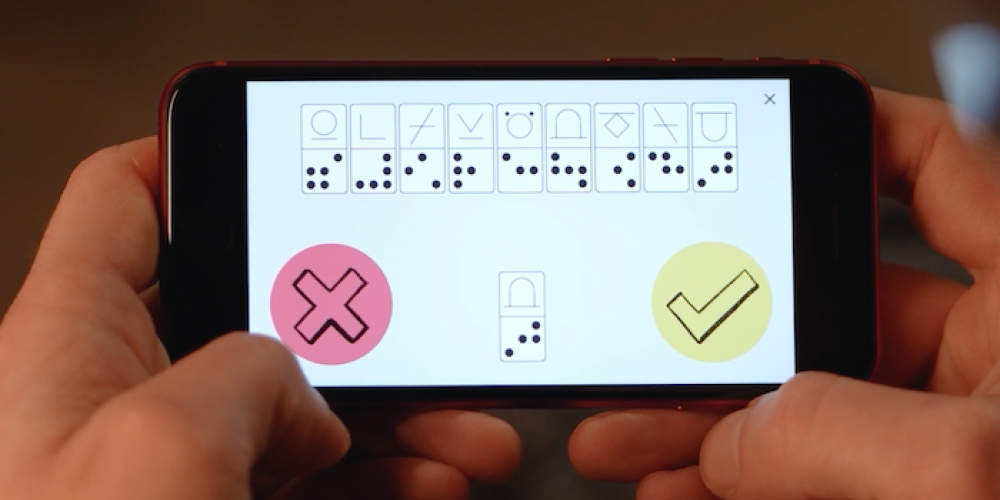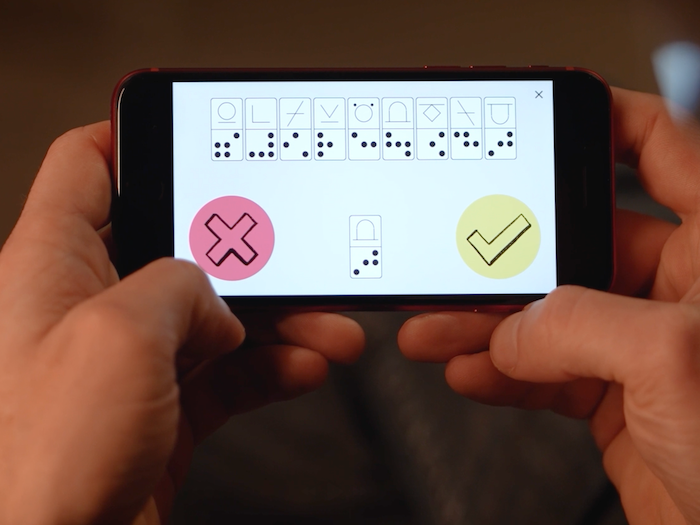
Researchers from Vrije Universiteit Brussel (VUB) and Universitair Ziekenhuis Brussel (UZ Brussel) have developed an innovative digital application that enables fast and efficient screening of cognitive and motor impairments in multiple sclerosis (MS) patients. The app provides a simple and accessible way to track cognitive decline and motor limitations, marking an important step in the digitalization of neurological care.
Cognitive issues affect approximately 40% to 70% of people with MS and can significantly impact daily functioning. Unlike physical symptoms such as mobility problems, cognitive impairments often go unnoticed. Regular screening is therefore crucial for timely intervention and support.
Fine motor skills also play a key role in assessing MS patients. There is often a link between cognitive decline and reduced motor skills. Until now, standard tests such as the Symbol Digit Modalities Test (SDMT) for cognition and the Nine-Hole Peg Test (NHPT) for motor skills were mainly available in clinical settings. This new app offers a digital and user-friendly alternative.
Dr. Stijn Denissen, one of the researchers involved in developing the app, explains: “Cognitive problems in MS are often subtle and less visible than physical symptoms, yet they can have a major impact on patients' quality of life. With this app, we aim to help both neurologists and patients gain better insights into the evolution of cognitive functions and motor skills over time.”

The application, developed in collaboration with icometrix, digitizes existing cognitive and motor tests and offers several advantages. Due to its ease of use, patients can independently take the tests at home and share the results with their neurologist during consultations. Digitalization also enables more precise analysis of reaction times and patterns, providing insights into cognitive fatigue and disease progression. Traditional paper-based tests have limitations, as patients may memorize the test content over time, leading to improved scores. The app minimizes this effect by offering variable test formats.
Dr. Delphine Van Laethem adds: “Many hospitals lack sufficient staff to conduct systematic cognitive screening. This app provides a low-threshold method for performing an annual cognitive and motor assessment, which is essential for proper MS patient follow-up.”
In addition to the cognitive tests, collectively known as "icognition," the application includes a new motor test: the Finger Dexterity Test. This test is based on the classic Nine-Hole Peg Test, where patients place and remove nine small pegs from holes. However, the digital version introduces a playful element: patients must break an egg, move it to a pan, and then transfer it to a plate—requiring subtle movements that test fine motor skills. This gamification increases patient motivation to complete the test accurately and regularly. “The playful aspect not only makes the test more engaging but also allows patients to assess their motor skills in a more natural way,” says Dr. Van Laethem. “This helps us obtain more reliable results.”
The developers emphasize that the app is not a replacement for neuropsychologists or other healthcare professionals but rather a supportive tool that helps them work more efficiently. The application could serve as a triage system, reducing the workload of medical professionals and allowing them to focus on more complex cases. The VUB-icometrix team has published both the anonymized study data and the scientific code used in their research, enabling reproducibility and further studies.
The development of this application aligns with the broader trend of digitalization in healthcare. By collecting standardized data, artificial intelligence (AI) could eventually play a role in interpreting test results and predicting disease progression. This could contribute to personalized treatment strategies and an improved quality of life for MS patients. “Digitalization is the first step towards more personalized and efficient care,” concludes Dr. Denissen. “By leveraging data more effectively, we can intervene earlier and optimize care for MS patients.”
Sources:
Denissen S, Van Laethem D, Baijot J, Costers L, Descamps A, Van Remoortel A, Van Merhaegen-Wieleman A, D’hooghe M, D'Haeseleer M, Smeets D, Sima DM, Van Schependom J, Nagels G. A New Smartphone-Based Cognitive Screening Battery for Multiple Sclerosis (icognition): Validation Study. J Med Internet Res. 2025;27:e53503. doi: 10.2196/53503
Van Laethem D, Denissen S, Costers L, et al. The Finger Dexterity Test: Validation study of a smartphone-based manual dexterity assessment. Multiple Sclerosis Journal. 2023;30(1):121-130. doi: 10.1177/13524585231216007
GitHub repository with code and data: https://github.com/AIMS-VUB/smartphone_tests
Contact:
Press office UZ Brussel: karolien.deprez@uzbrussel.be